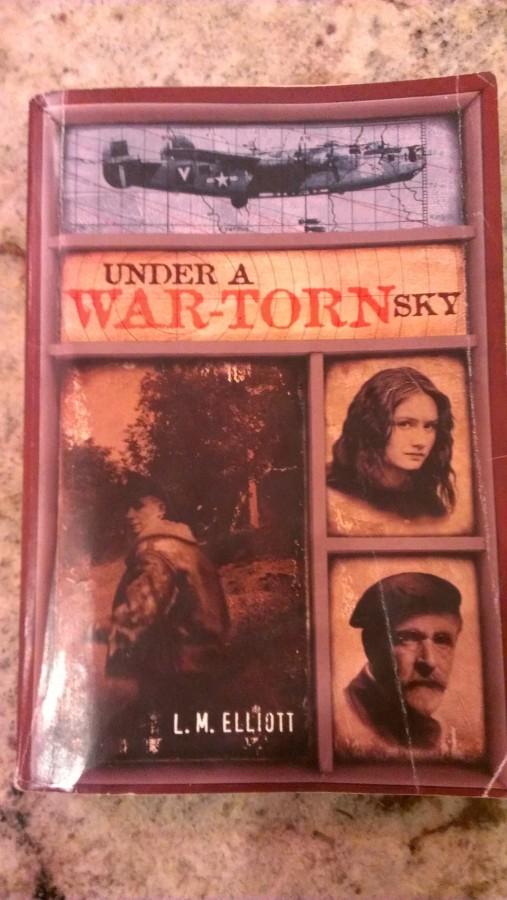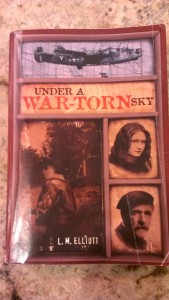Under a War-Torn Sky by L.M. Elliot is a book that depicts the life of a young American soldier who fights through enemy territory in his quest to return home.
The main character, Lieutenant Henry Forester, is a B-24 pilot during World War II. During his fifteenth combat flight into Germany, Forester’s plane is shot down, forcing Forester to bail out over German-occupied France.
Aided by an old schoolteacher, Forester travels to neutral Switzerland, where he becomes a Prisoner of War. However, during transport to another prison, Forester evades his guards and winds up in France.
Forester then attempts to escape to Spain, but is captured by the German Gestapo. After being tortured, beaten, and starved for three days, he once again escapes during transport to another prison.
Alone in the French countryside, Forester meets Claudette Besson, a young French patriot heartbroken over the death of her boyfriend. Claudette belongs to a group called the marquis, or French Resistance, and Forester helps them launch guerrilla raids against the Nazis.
Unfortunately, during one such raid, he is recaptured by the Nazis as he gives himself up so that Claudette can escape.
At the same time, the Allies are making a push into Axis-occupied France, which reduces the Germans to a disorganized retreat.
Will Forester be able to escape once again, this time to definite freedom and return to his loved ones?
One must read Under a War-Torn Sky to find out.
This book is exceptionally well-written, and molds history into an exciting account of a young man’s quest for home during WWII. The book is very action-packed, and therefore virtually impossible to put down.
It has highs and lows, ups and downs, but overall stresses the key moral of, “never give up, never surrender,” as Forester never accepts the grim outlook of any horrible situation he’s faced with.
Under a War-Torn Sky also shows a unique perspective of a boy turning into a man, which makes high school students grateful that they aren’t forced to reach their manhood in such adverse situations.
A negative aspect of this book is that there are many terms from WWII that the average person will not know, so it will be beneficial to first educate oneself about WWII before reading this book.
In a society where recently many horrible atrocities have been committed, this book will give solace by showing that no matter what hardships our society is faced with, we will always make it through.












